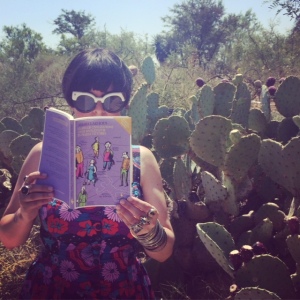Amara Lakhous‘ Clash of Civilizations Over an Elevator in Piazza Vittorio takes its title from a movie that one of the characters, Johan Van Marten, wants to make about tenants living in the same building, what the elevator represents to them, and how they interact with one another as a result of the shared space. A long-time tenant is found dead in the elevator. One man, Amedeo, is accused of the crime, but none of the tenants believe he is the murderer, so they each give their suspicions, opinions, and prejudices.
Clash of Civilizations Over an Elevator in Piazza Vittorio is a single story with multiple versions and interpretations. Lakhous achieves this through narratives of very different types of people who give their opinions of their fellow neighbors. Each character is insanely earnest and certain that they are proper citizens, contributing to society without any prejudice or racism. Lakhous also questions whether a true Italian is from a particular region or if being a real Italian is based on knowledge of Italian history and culture.
Parviz Mansoor Samadi, my favorite character, is a refugee from Iran. However, most characters see him as “other” or “immigrant” and lump him with any country except that which is actually his. Parviz wants to be a chef in Italy but he hates pizza and pasta; he wants to feed the pigeons; and he fears for his life when his first and last names are switched on his id card.
Benedetta Esposito is from Naples and the building manager. She is certain that Parviz is Albanian and the murderer. Additionally, she refers to Iqbal as Pakistani even though he repeatedly corrects her, and insists that Maria Christina Gonzalez, the care-taker from Peru, is Filipino. Benedetta believes that all immigrants* are criminals and need to be thrown out of Italy. One of her most telling lines is “I’m not a racist, but that’s the truth” (38). As I’m reading her version of truth, I can imagine a kind, earnest, hard-working woman. A woman who would never use a racial slur and proudly state that there should not be and is no racism in her country. And yet, she is so prejudiced and racist that she believes all people from other countries are the same, that their conversations are to be ignored, and that they should be rounded up and sent back.
Another Italian tenant, Elisabetta Fabiani believes immigrants are stealing jobs from Italians and that the lower level jobs should be given to well-trained dogs. Yes, I wrote that correctly, and yes, you read that right. According to her, “it is a truth that we do not need immigrants.” (59) And again, when reading her version, I can see an older lady, living alone, with only her dog and tv for company. I feel sorry for her, she wants you to, and so does Lakhous. He intentionally makes sympathetic prejudiced people. Because most racists aren’t wearing shirts with racial epithets. They quietly make comments, they subtly insinuate guilt on innocent people.
With every version of truth, from the Roman, Neapolitan, Iranian, Bangladeshi, Dutch, Peruvian, Lakhous asks what is prejudice? There is prejudice based on skin color, based on country of origin, and subsequently based on region. What’s most telling about all these characters is that none of them consider themselves racist or prejudiced. Often, they believe that they are stating the facts, or merely observing what they saw. And yet, they refuse to listen to each other. They ignore their neighbors’ corrections about where they are from, or what they do. Their prejudices, or preconceived notions of who these people are never change, not with daily association, nor with conversation.
All these people live in the same building, and instead of helping one another, they hinder one another. They do not listen or get to know one another. They are strangers, and some of them are even enemies, living in the same building, sharing an elevator.
Amara Lakhous, Clash of Civilizations Over an Elevator in Piazzo Vittorio. Trans. Ann Goldstein. Europa Editions: New York, 2008.
*She does not distinguish between refugees and immigrants.
